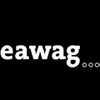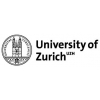
Postdoc position in Groundwater Biodiversity (2 years)
Groundwater is an essential ecosystem, indispensable for the provision of groundwater ecosystem services such as clean drinking water, and habitat for a highly diverse and specialized fauna.
Yet, it has been insufficiently studied and documented to date and its fauna and ecosystems processes are not systematically recorded in most regions worldwide.
In this project you will be analysing genetic, functional and taxonomic diversity of groundwater amphipods in Switzerland, building on a very extensive existing dataset and complemented by own field- and laboratory work.
The goals of the Postdoc project are :
Biogeography / Conservation : Analysing the distribution of groundwater amphipod species across Switzerland in the context of range sizes, dispersal pathways, refugia and expected global change effects.
Collaboration in establishing a red list for these species, such that they can act as ambassador species to promote the protection of groundwater / subterranean ecosystems.
AND / OR
Taxonomy / Phylogeography : Genetic and morphological analysis of groundwater amphipod species, including many endemic species.
Taxonomic and faunistic work, describing newly discovered species.
We offer state-of-the-art infrastructure, including molecular laboratory facilities (for DNA barcoding and eDNA metabarcoding), field-work, and access to a unique long-term dataset of thousands of amphipod samples / DNA sequences / sites sampled over the last 10 years.
The planned research project will fit in the wider range of research conducted in the Altermatt lab, involving conceptual and experimental work on groundwater ecosystems.
The postdoc is expected to build and link to these capacities and general interests of the lab and to maintain stakeholder interactions.
For our previous work (incl. publications), see also and
Competitive applicants have expertise in community ecology, spatial ecology, biodiversity sciences and statistics. Previous experience in taxonomic work (species descriptions), molecular techniques (barcoding, metabarcoding) and bioinformatics (metabarcoding data analysis) is highly desired.
Applicants will be highly motivated, enthusiastic and independent scientists. They must have a good conceptual understanding of ecological theory and analytical skills.
Excellent communicational and writing skills in English, experiences with publishing scientific articles, good work ethics, and creative thinking are a must.
A PhD in ecology, evolutionary biology, biodiversity sciences or related subject is necessary for admission.
The project / position is co-supervised by Dr. Roman Alther and Prof. Florian Altermatt. You will be part of the Altermatt lab, which has a shared base at University of Zurich and at Eawag.
It offers a stimulating and international research environment, excellent research facilities and a lively and social working place.
The working language in the lab is English. Zurich hosts many other research groups in ecology and biodiversity research, and is among the world’s leading cities in terms of science, culture and quality of life.
For further information , consult or directly contact Prof. Dr Florian Altermatt.
Applications must be submitted by 22th November 2024 and should include a motivation letter with a description of pertinent experience, a complete CV (incl.
publication list), the names and e-mail addresses of three academic references, and copies of certificates of academic qualifications.
The application should be submitted as one single pdf-file. The position is open as of now, and the successful candidate is expected to start the latest in the first half of 2025.
University of Zurich and Eawag are both committed to promoting diversity and equal opportunities for underrepresented minorities, and to support the compatibility of family and work.
Applications from women are especially welcome.
We look forward to receiving your application through this webpage, any other way of applying will not be considered. Please click on the button below, this will take you directly to the application form.





